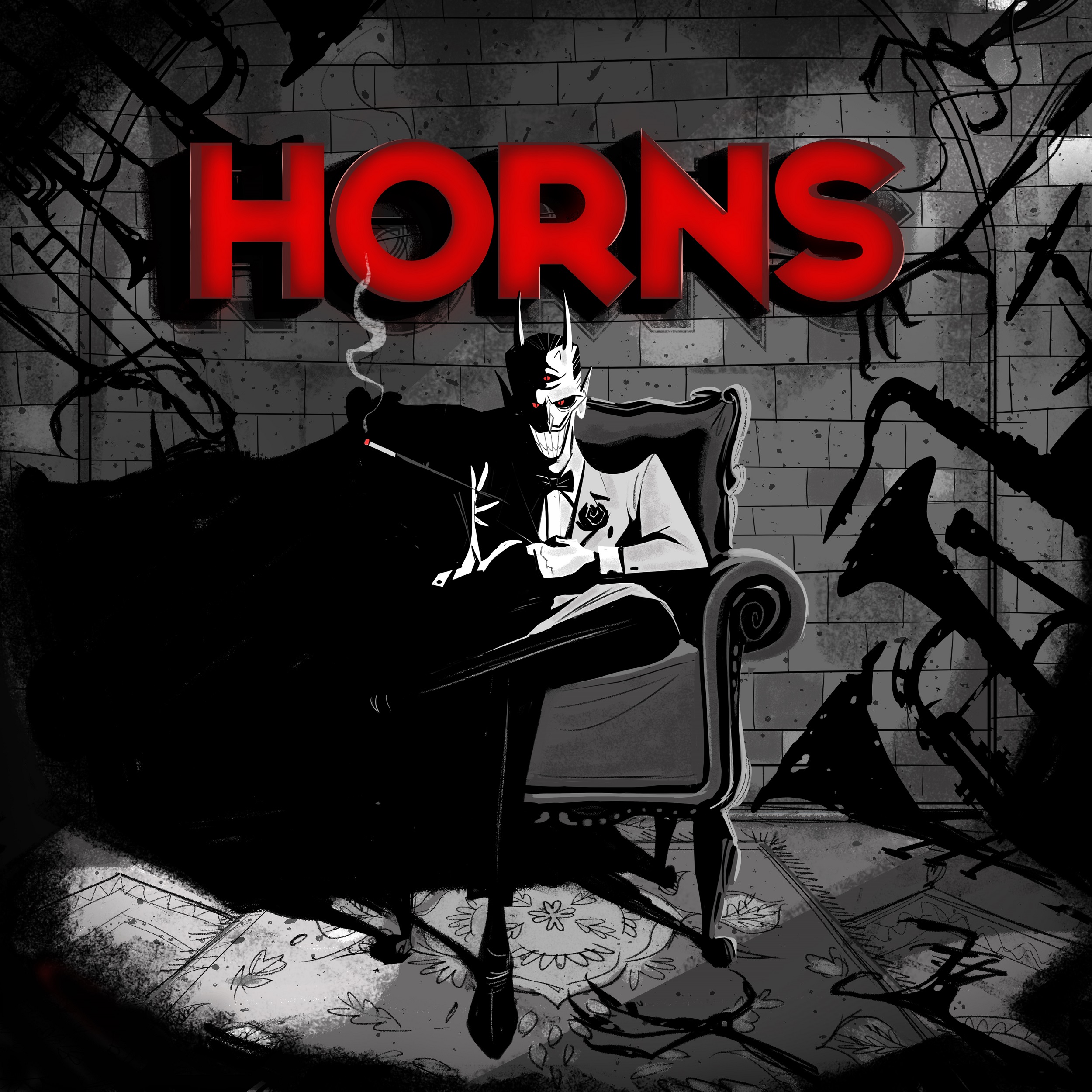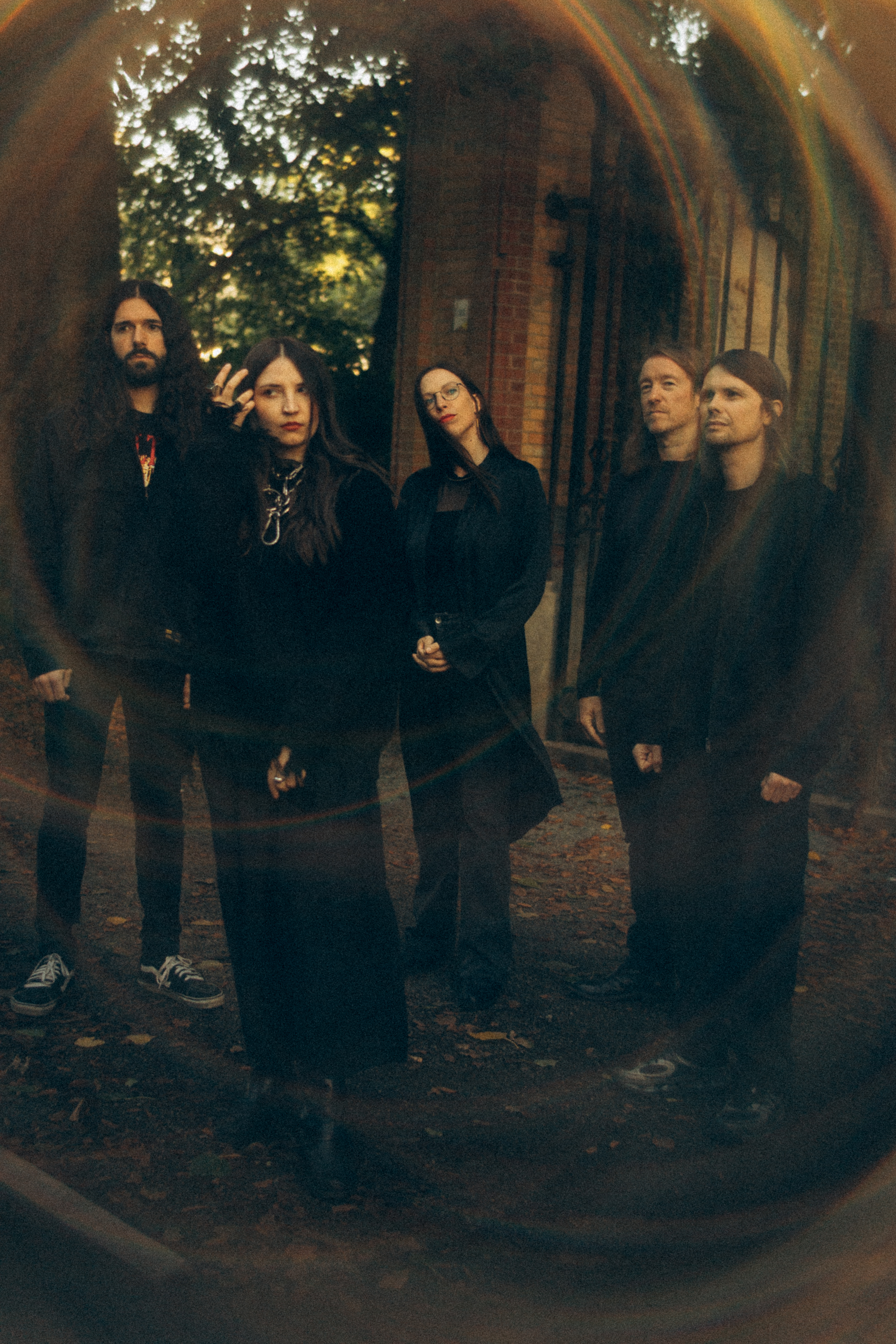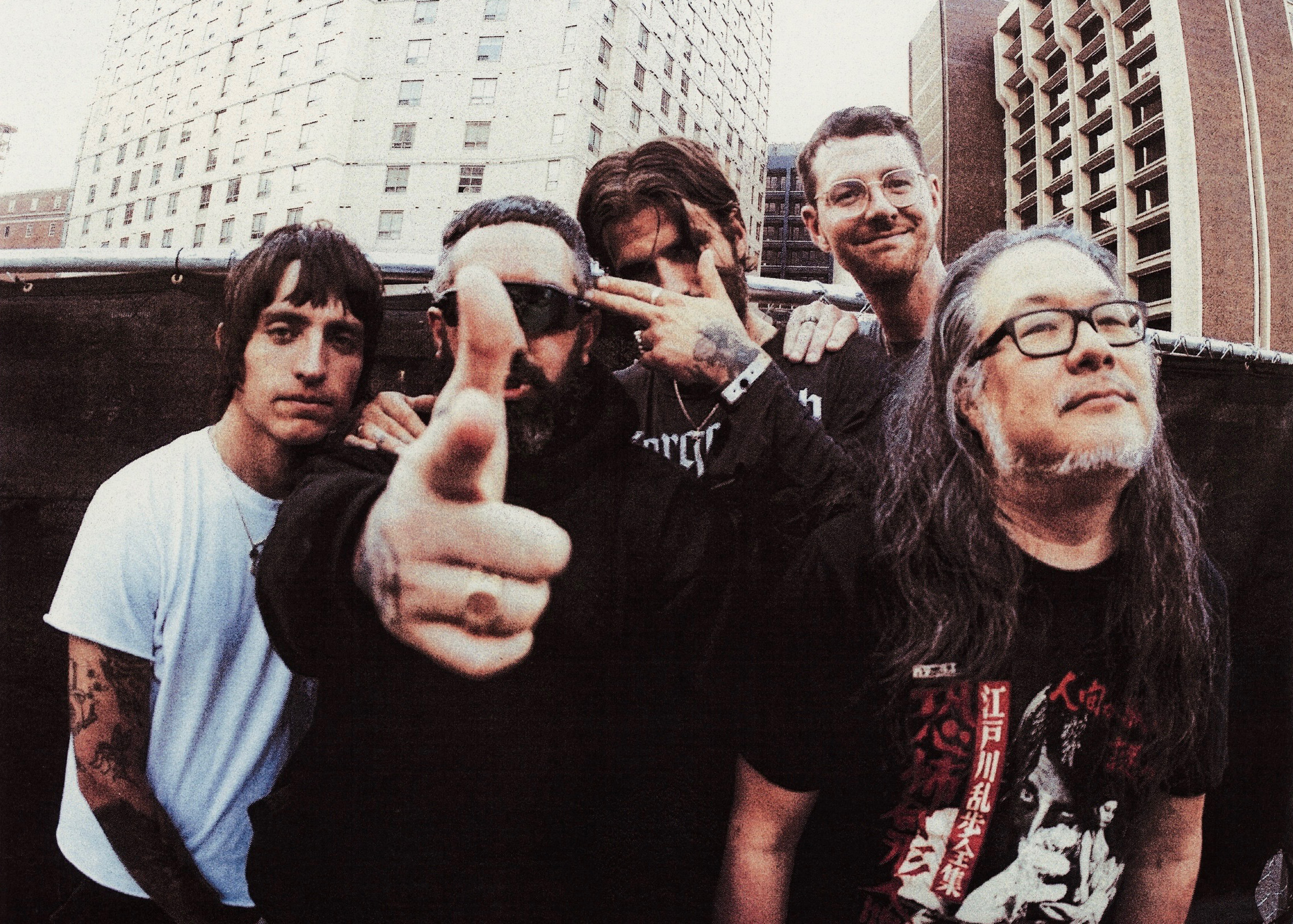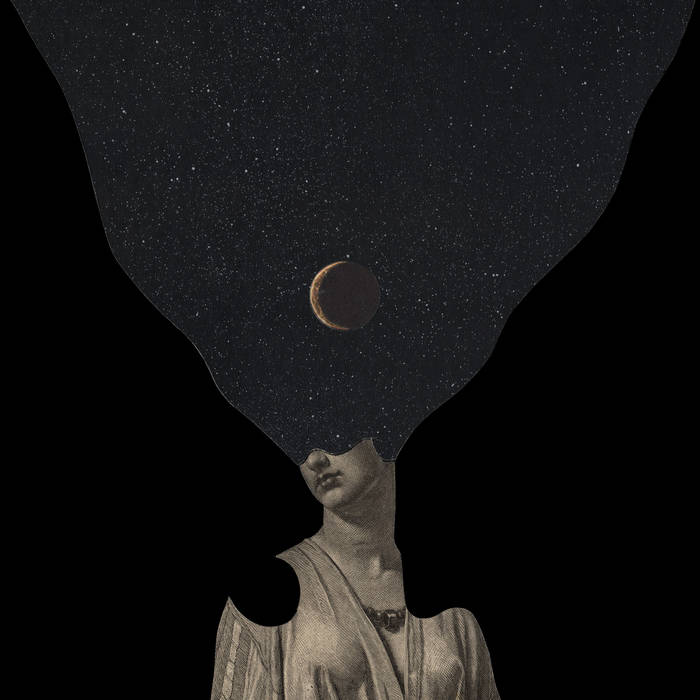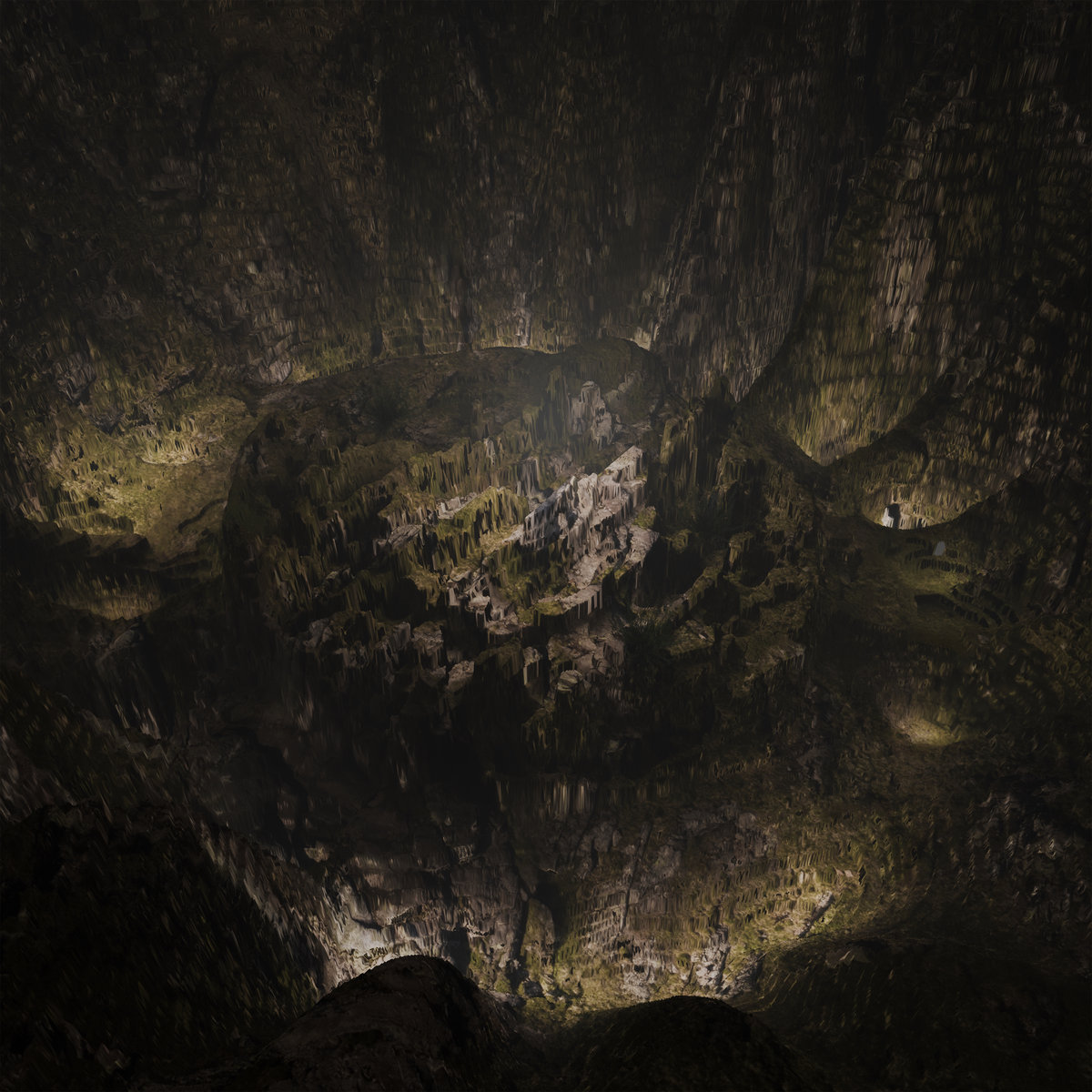Source, Tags and Codes - and no this is not going to be a review trying to built connections between records that hold no connection. It’s just gonna use it to structure this review of Ekca Liena’s latest record. The second part of the text will be a short interview we did with Daniel Mackenzie, the mastermind behind the ambient project.
Source - well, of course, Daniel is the source for everything we hear on Skyward Vernacular, the last record he has composed under this stage name. A voyage that started more than ten years ago with the release of the Slow Music For Rapid Eye Movement back in 2008. Now, some thirteen years later, Ekca Liena shows once again how important an open ear is for such music. One can hear many field recordings that have then been re-assembled and re-transfigured. The most “dominant” instrument are the reconfigured Glockenspiel sounds that are used throughout the record because they go along very well with the theme (see Codes). The way that Mackenzie layers some slightly distorted levels of music upon each other is easily some of the most remarkable ambient music I heard in 2021 as it can become so loud that it’s bordering on drone-metal, e.g. listen to “World Pivot” with its “blacklashes” of sounds. Here the knacking or percussion somewhat remind me of an old zeppelin - but one is not in the little cabin underneath it but in the middle of the balloon and you can hear all the movements of the structure inside. The same can be said about the thirteen minute epic “Through Decades”.
Tags As aforementioned this is ambient music and one should not try to impose any other genre-tag on it, for Mackenzie plays with quite a few of them on this record. You can even hear an ambient world music track like “Look Your Last” where you seemingly hear chants from far away. Or the continous industrial hints in many songs. Some of the sounds are so raspy and rigid that one might think that this is industrialized folk. Whatever tag one wants to place upon it - be aware that it is useless up to a certain point, for there are too many elements in here. The only really applicable one is ambient, for that is the basis for everything. Any other notion is something that the listener projects onto it.
Codes The voyage of Ekca Liena is over and where better to dissolve than into the vapor from which we came. Thus the direction must always be upwards for we all go to heaven, right? So, up, up, we float - and how can we float that direction? Obviously with the help of the winds. And here the glockenspiel-chimes come into play as well as the sounds that seem to fringe out toward the celestial. The last voyage that we all go on is hinted at with Skyward - and if that is the direction, then all the sounds we hear form the Vernacular for this trip. That notion once again shows how great this artist is at naming his records. Naming, arranging, recording them! And thus we were lucky to get Daniel’s last interview as Ekca Liena for you. Check it out here:
Daniel, the name Ekca Liena is obviously a play on your name, like an abbreviated anagram: however, you are probably aware that people can take that anagram and rearrange its letters into words like “acke” or “alien”. How do you react to people searching for hidden messages in your stage moniker or songs?
It’s great that there are those who would have the curiosity and creativity to imagine meaning in the alias, even if there really isn’t any meaning other than that it’s another, more abstract version of me. Often I don’t think it matters what an answer is, or if there is an answer at all, as long as people are intrigued and inspired by the sensation of a question.
Is that something you like to do yourself when discovering new music?
I suppose so, yes. Titles and artist names can go a long way to contextualise music, especially instrumental music. Perhaps the best way is a balance between the artist’s personal intention and their desire to share the music in a way that allows for open interpretation. For me, sure I sometimes want to make it clear that a particular piece of music relates to a specific experience or memory of mine. Other times however it’s important to me to provide a sort of framework of meaning onto which others can apply their own experiences, if they want to.
What I love about your music is the sheer space it takes – from really minimalist compositions to full-fledged all-out-noise parts where seemingly everything goes into creating a vast and loud drone-metal kind of atmosphere. How do you go about creating those “songs” - in parts or one long road at a time?
Generally speaking there isn’t really a fixed method that I use over and over again. Over the years I’ve recorded a lot of music - miniature skeletons of tracks, repeating phrases, drones, short melodic experiments, noise blasts and so on. There is a process of examining these things and exploring further musical potential, or using them as basic blocks with which to build longer pieces. This will normally involve layering, looping and repeating, recording extra parts, swapping instruments and lots of processing and micro editing. A lot of it comes from putting together a basic hardware and / or software set up and just improvising something. This is where the most direct expression lies, feeling something out and keeping an ear open for when truly honest playing emerges, when I can sense it’s reflecting closely the emotional state I happen to be in or want to transform into music.
In a longer track like “Through Decades” (from the new album) the long noisy section is obviously its own coherent part, but the track as a whole is a result of asking myself how I can utilise musical progression and transportation to create a journey. What recordings do I already have to facilitate this? What process and recordings should I make? Quite often I don’t really know until it happens, and something clicks.
Now Skyward Vernacular is not only a wonderful record but also a wonderful title – as it has a kind of celestial feel to it, as if we were using either a pilot’s lingo or the vocals of angels. How ambiguous is the title for you yourself?
It’s definitely open to interpretation and I’d be interested to know what other people think of it, how it applies to them. For me it’s an attempt to give identity to the feeling of extreme emotional states being somehow just out of the reach of understanding, how communication about these states often fails to accurately or sufficiently outline their depth. It’s also a useful tool to characterise the last Ekca Liena album for what it is: a departure and an ending, the closure of a story and a life - ‘skyward’ suggesting leaving this reality for a resting place. In this sense I wouldn’t necessarily say it’s ambiguous for me, more that it has multiple overlapping meanings.
The upward-reaching elements, the sounds of little sounds imitating wind or the ambient passages that seem to fringe out towards the sky – all of those are surely intentional but how difficult was it to record all of those and then assemble them?
Honestly I don’t pay too much attention to meticulous recording techniques. Perhaps I should, but I’ve always favoured the energy of the moment and if that means you very quickly switch all your equipment on and just go for it then so be it. I see value in background noise, the mistakes and badly tuned instruments. There is a point when it would be too much of course and it could sound like a bad mass, but a little bit helps retain the notion that a human being is behind this abstract and quite lofty music. We’re flawed and uncertain creatures after all. If something really has to be cleaned up or corrected, I’m intrigued by what production possibilities open up to do this. Often it’s possible to find new ways of working with sound that begin with correcting, and these ways by their nature wouldn’t come without allowing a degree of inaccuracy to begin with.
When it comes to production I spend a lot of time working with the stereo field and finding space in the mix for details. A review of (I think) Graduals mentioned that it sounds both massive and tiny at the same time, that it’s like the universe around us, and the biological world within. I like this idea a lot. Playing with scale and extremes of magnitude via a careful combination of detail and power can achieve something like this.
Very interesting about the record are also the percussive elements and the “beats” - some are very well-done like the bassline in “Night Art” which reminded me a bit of Tool’s “Schism” - a pure coincidence and not intended right?
That’s interesting. I was obsessed with “Schism” and the album Lateralus when I was younger and I think it’s still an amazing record now. But yes you’re right that’s a total fluke, or a move that was completely subconscious. Music has a way of slipping into the psyche unnoticed.
But when talking about other musicians – whenever one looks you up he will find a wide variety of comparisons from Godspeed You! Black Emperor to Machinefabriek. Have there ever been comparisons which you felt were really inappropriate?
In a review of Slow Music for Rapid Eye Movement the album was compared to Mogwai. I didn’t really understand that one. I also recall Boards of Canada being mentioned, which is cool but again, not sure I can see the resemblance there. My band Plurals were once described as noise rock band, which is really odd, but in these cases it all depends on the set of references the writer has to draw upon, and it’s still interesting to see how the music lands for someone clearly not embedded with the exact scenes Ekca Liena sits with, whatever they are… I’m not even sure sometimes.
Is there any musician or band that really influences you?
Oh there are loads, though I’m never really sure how directly influenced I am by anything - it’s really hard to say. I think for me a lot of music goes through my head and the influences come later in quite unidentifiable ways. There’s definitely a lot of classic ambient music from the electronic world that underpins things though: Selected Ambient Works II, 76:14, that sort of thing. Then there’s the doom and post-rock influences from bands like Sunn 0))) and Godspeed, to name the obvious two. I would say modern classical music and certain soundtracks probably influence it too, as well as the much deeper, beautiful side of 60s and 70s psychedelic rock, the kind of music Popol Vuh and Ash Ra Tempel were making. Around 2008 there was a really exciting scene for underground noisy ambient music with artists like Belong and Lähtö all doing that Tim Hecker thing. It was nice to be involved in that, although I always suspected the Ekca Liena sound was a bit of an outsider - too dark and doomy for the uplifting ambient purists that I never really felt a connection with; too melodic and at times gentle for the heavy, noisier people. One artist I always admired and still listen to regularly is Cathal Rodgers, under his Wereju moniker. That music is an incredible combination of deep, awfully upsetting darkness and slowly collapsing dissonance, but when it reaches the harmonic and melodic peaks it’s absolutely stunning.
We must come to the sad part – you mentioned that this might be your last record under the moniker Ekca Liena – is that true?
Yes, I won’t be producing any more music under this name. Ekca Liena was a wonderful companion and provided a useful outlet or means to understand many aspects of existence, personally and universally. There were a couple of very productive periods - I can’t remember accurately when these will have been but I’m guessing the first was around the time of Slow Music for Rapid Eye Movement, and the second around the time of Gravity and Grace. A lot of the music from the main five albums was first drafted in these periods and the years between were spent building the tracks out and turning them into finished releases. I self-released a series of archives on my Bandcamp to collect together offcuts and stray tracks before Skyward Vernacular was released. The release of the album basically completes the story that the main albums tell. It’s out now, and that’s it. It’s hard to explain it properly but in essence there are just greater artistic priorities for me now.
It’s worth mentioning also that releasing music traditionally is just not the same as it was. The potential for exploitation and digital piracy has been a great threat to independent and DIY music for some time now and if I may be very blunt, it has become a more upsetting process to see the hard work of artists, labels and all the other elements reduced to Spotify and dodgy MP3 sites. I don’t really have it in me to put as much faith into that arena as I used to.
When looking at the Ekca Liena body of work it becomes apparent how different the five pieces or full-lengths have been. Each of them seems as if it was conceptualized like a certain chapter within a book. Have you really sat down at some point (maybe after the success of Slow Motion…) and developed this concept? Or is that also a mere coincidence?
It’s sort of in between. The ‘story’ or ‘main sequence’ did indeed start with Slow Music for Rapid Eye Movement, and each album has its own set of themes. I already had a lot of music in production at that point and I wanted to explore many possibilities and formats, but it’s important to me to create meaningful dialogue across a discography and I decided this would rest within this main album sequence, with additional material filling the gaps. I wasn’t totally sure how long it would be at first, but when writing Skyward Vernacular I kind of knew that would be the last. At that point it didn’t necessarily mean the end of Ekca Liena completely, that realisation came later… but it started to make sense to end the story and the project in one move.
On some evening soon I plan to get a bottle of wine or two and sit and listen to all of the five ‘story’ albums in one go, straight through. All five and a half hours, no breaks. I’ve not done that before, and I think it would be a poignant, personal way of saying goodbye.
Interestingly, the names of the records also could be their shortest description possible – think of Gravity and Grace or Graduals. How do you go about naming your records? Do you think the name gives it sense or is the name something that comes along while writing, composing, recording it?
The titles of those five albums all relate directly, if perhaps quite abstractly, to the main concepts of the records, with Graduals perhaps being the least obvious one. Going back to what we discussed before I think a degree of ambiguity is useful as it allows people to take the content of the music and apply it to themselves. I like that it’s music that can be shared in this way, used by people for their own purposes. Gravity and Grace is the only title that takes its name from something else - the book by Simone Weil.
The name often comes towards the end of the main writing process, when the album really starts to develop a notable character. Drawing a little on what came in a previous album, what themes to link to or avoid repeating too heavily, helps craft the direction of the new one.
Now that Ekca Liena is going to end – what will come next for you? What is the next project? You are also working in the “arts” when it comes to things like installations and exhibitions. How are these soundscapes then being created? Is the exhibition space the first thing you need to see or does every soundscape lend itself to every space?
My focus is now on sound in other contexts. I’ve produced a number of installations already and am currently developing several more ambitious works which I hope to finish and have presented in relevant spaces over the next few years. These tend to combine sound with other elements like sculpture, spatial acoustics and different modes of listening. I’m also aiming to delve deeper into more abstract approaches toward writing and producing music, which despite what I said before, I’d like to end up as releases. There is a third album of modern classical, piano focused music nearly finished (as Daniel W J Mackenzie) so more plainly emotive music is still on the cards, just not as central to my work as it has been.
In terms of sound in space, it will totally depend on the nature of the work. My priority at the moment is just making sure that whatever space the work ends up in, and this goes for physical space as well as the more abstract concepts of online space and releasing music, elevates the work as much as possible.
On your website it says “[your] artistic studies are driven by conceptual and academic investigations into the phenomenology of listening and engaging with sound and subtle stimuli.” Can you explain the depth of that “academic investigation” and how you then apply your knowledge about “sound and stimuli”?
This statement relates more to my installation work and more abstract sound and music, which generally speaking is all about combining listening practices with other means of experiencing the world, in a way that straight up music doesn’t really offer. This applies to a range of perceptive functions, and a degree of research and contemplation is required to substantiate whatever plans and goals I set up for myself. So in terms of academic pursuits this direction could very likely pull me towards psychology, biology, geology… whatever influence on the work happens to come up. It’s a step towards working with sound as a phenomenon that exists in relation to life, in both direct and less direct ways. And if and when that causes significant musical material to emerge, then there lies the magic.


